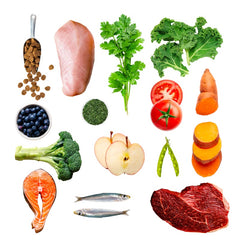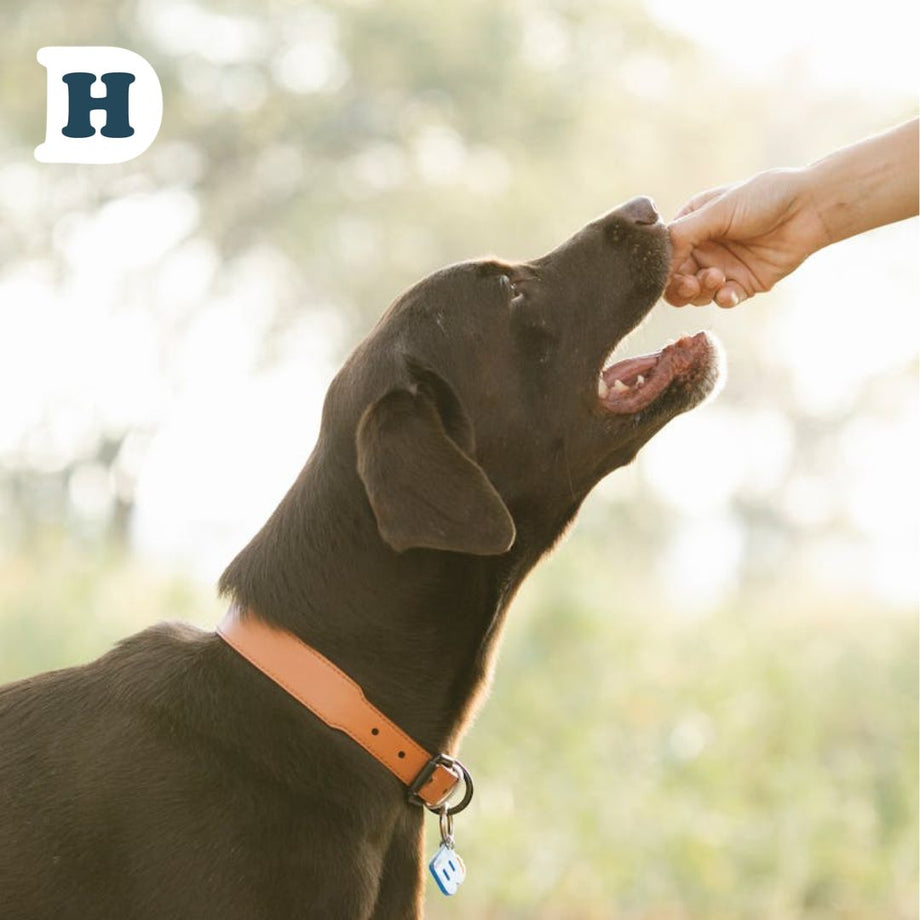
Are you wondering if it's safe for your furry friend to snack on apples? Look no further! In this comprehensive guide, we'll answer all your questions about dogs enjoying apples as a treat.
Apples are a delicious and nutritious snack for humans, packed with vitamins, fiber, and natural sweetness. But what about our canine companions? Can dogs safely enjoy apples?
The good news is, yes, dogs can eat apples! Apples are generally safe for dogs and can offer a range of health benefits. However, there are a few things you need to keep in mind to ensure your furry friend's safety.
In this guide, we'll cover the potential benefits of feeding apples to your dog, including their nutritional value and how they can support their overall health. We'll also discuss some precautions and guidelines to follow when offering apples to your pooch.
So, if you're curious about incorporating apples into your dog's diet, keep reading to discover everything you need to know. Let's keep those tails wagging with delicious and healthy apple snacks for our four-legged friends!
Can dogs eat apples?
Apples are generally safe for dogs to eat. They can be a great addition to their diet, providing them with essential vitamins and fiber. However, there are a few things you need to keep in mind before offering apples to your furry friend.
Firstly, it's important to remove the seeds and core of the apple before feeding it to your dog. Apple seeds contain small amounts of cyanide, which can be harmful to dogs if ingested in large quantities. While a few seeds may not cause any harm, it's best to play it safe and remove them altogether.
Furthermore, it's crucial to remember that apples should only be given to dogs as an occasional treat. While they are a healthy snack, they should not replace a balanced diet formulated specifically for dogs. Too many apples can lead to an upset stomach or diarrhea, so moderation is key.
Lastly, it's always a good idea to consult with your veterinarian before introducing any new food into your dog's diet. They can provide personalized advice based on your dog's age, size, and any underlying health conditions.
In conclusion, dogs can eat apples safely, but it's important to follow these guidelines to ensure their well-being.
Health risks of feeding apples to dogs
While apples are generally safe for dogs, there are a few health risks to be aware of. One of the main concerns is choking. Dogs, especially small breeds, may have difficulty chewing and swallowing large pieces of apple. To minimize this risk, it's recommended to cut the apple into small, bite-sized pieces before offering it to your furry friend.
Another potential risk is an upset stomach. Some dogs may have a sensitive digestive system, and consuming apples, especially in large quantities, can cause gastrointestinal distress. If you notice any signs of vomiting, diarrhea, or discomfort after your dog eats apples, it's best to consult with your veterinarian.
Additionally, apples are high in natural sugars, which can lead to weight gain and dental issues if consumed excessively. Just like with any other treat, it's essential to practice portion control and ensure that apples are given as an occasional snack rather than a staple part of your dog's diet.
By being aware of these potential health risks and taking necessary precautions, you can safely incorporate apples into your dog's snacking routine.
Nutritional benefits of apples for dogs
 At Delivery Hound, we know that apples offer a range of nutritional benefits for dogs. They are a good source of vitamins A and C, as well as dietary fiber. These vitamins play a crucial role in supporting your dog's immune system, promoting healthy skin and coat, and aiding in overall digestion. This is why Man's Best Grain Free Dog Food contains apples in their food!
At Delivery Hound, we know that apples offer a range of nutritional benefits for dogs. They are a good source of vitamins A and C, as well as dietary fiber. These vitamins play a crucial role in supporting your dog's immune system, promoting healthy skin and coat, and aiding in overall digestion. This is why Man's Best Grain Free Dog Food contains apples in their food!
The fiber content in apples can help regulate your dog's bowel movements and promote a healthy digestive system. It can also be beneficial for dogs with certain gastrointestinal issues, such as constipation or diarrhea.
Apples are also low in calories, making them a healthy and satisfying snack option for dogs who may be watching their weight. The natural sweetness of apples can be an excellent alternative to processed treats, which often contain added sugars and unhealthy ingredients.
However, it's important to note that while apples are nutritious, they should never replace a balanced and complete diet specifically formulated for dogs. They should be offered as a supplement to their regular meals, in moderation.
How to prepare apples for dogs
When preparing apples for your dog, it's important to take a few extra steps to ensure their safety and enjoyment.
Firstly, always wash the apple thoroughly to remove any dirt or pesticide residue. Organic apples are a great choice if available, as they are less likely to contain harmful chemicals. Once clean, remove the stem, seeds, and core of the apple.
Next, slice or dice the apple into small, bite-sized pieces. This will make it easier for your dog to chew and swallow, reducing the risk of choking. If your dog prefers softer textures, you can also steam or bake the apple slices until they are tender.
You can serve the prepared apples as a standalone treat or mix them with your dog's regular food. Some dogs may enjoy frozen apple slices during hot summer months, providing them with a refreshing and healthy snack.
Remember to introduce new foods gradually to your dog's diet and monitor their response. If you notice any adverse reactions, discontinue feeding apples and consult with your veterinarian.
Other fruits that dogs can safely eat
While apples are a safe and healthy snack for dogs, there are other fruits that can also be enjoyed in moderation.
One popular fruit option is bananas. Bananas are rich in potassium and fiber, making them a nutritious addition to your dog's diet. They are also easily digestible and can be served as a frozen treat or mashed and mixed with your dog's food.
Blueberries are another excellent fruit choice for dogs. They are packed with antioxidants and vitamins, promoting overall health and immune function. Blueberries can be served fresh or frozen, offering a tasty and nutritious snack option.
Strawberries are yet another fruit that dogs can safely enjoy. They are high in vitamin C and fiber, supporting your dog's immune system and digestion. Just like with other fruits, it's important to wash and remove the stem before offering them to your furry friend.
While these fruits are generally safe for dogs, it's important to remember that each dog is unique, and some may have specific dietary restrictions or allergies. Always introduce new foods gradually and monitor your dog's response.
Apples as a healthy and safe snack for dogs
Apples can be a healthy and safe snack option for dogs when offered in moderation and prepared properly. They provide essential vitamins and fiber, supporting your dog's overall health and well-being.
However, it's crucial to remove the seeds and core of the apple, as they contain small amounts of cyanide that can be harmful to dogs. Additionally, always consult with your veterinarian before introducing any new food into your dog's diet, especially if they have underlying health conditions.
Remember to be mindful of the potential health risks associated with feeding apples to dogs, such as choking and upset stomach. Cut the apple into small, bite-sized pieces and practice portion control to ensure your dog's safety.
While apples are a great snack option, they should never replace a balanced and complete diet formulated specifically for dogs. They should be offered as an occasional treat alongside their regular meals.
If you're looking to vary your dog's snacking options, other fruits like bananas, blueberries, and strawberries can also be safely incorporated into their diet.
By following these guidelines and considering your dog's individual needs, you can confidently offer apples and other fruits as a healthy and enjoyable snack for your furry friend. So go ahead, share the goodness of apples with your dog and keep those tails wagging!
©deliveryhound.com.au 2023






